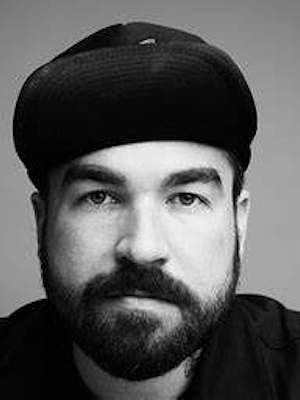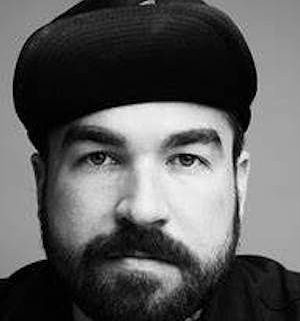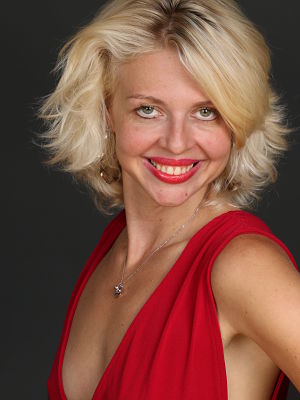Isaac Fitzgerald, Editor, Essayist
 Who is Isaac Fitzgerald?
Who is Isaac Fitzgerald?
This inked essayist is the love child of Jack Kerouac and The Dropkick Murphys on paper. He is gritty and adventurous like his beatnik predecessor, but has the modern punk rock sensibility of the same band that hails from his home state of Massachusetts.
Fitzgerald easily picks up where the beatniks left off. Instead of the East Village, he resides in Brooklyn. However, despite the change in locale, his essays have the same rogue spirit of adventure. Instead of mere sentences strung together, it is as if Fitzgerald is sitting on a bar stool with a straight whiskey in his hand talking to his reader about his fantastical life at the local dive bar. He delivers an Odyssey where the Trojan horse might be upstaged by something better, more grand, but also more likely to get one arrested. In works such as “The True Story of My Teenage Fight Club,” Isaac Fitzgerald channels and captures both angst and humor. In the ever identifiable “Why I Stopped Running From New York,” he speaks a truth many who live in the five boroughs (myself included) feel.
The former editor of McSweeney’s and The Rumpus and the current host of Buzzfeed’s #AMtoDM spoke to me. He was just as candid in person as he was on paper, admitting he was the only person he knew who got more into astrology after leaving the West coast. It was a pleasure not only getting to know the man behind the words, but getting to be positively impressed by the passion and process of this writing great.
April Brucker: Thought I’d start off with a few random and personal questions. What do you typically eat for breakfast?
Isaac Fitzgerald: I know this sounds really bad but I only have a cup of coffee. I typically wait to eat until lunch.
AB: What is your astrology sign?
IF: Aquarius.
AB: You are from rural Massachusetts and you seem to write a lot about your upbringing. Why did you pick that topic?
IF: I grew up reading, writing, and escaping through books. After seeing the world, I wanted to return to the place I escaped from. That’s one of the themes of my work. I wanted to give that kid who grew up in that small rural town a voice. Writing about where I grew up is a way to examine and work through trauma.
After seeing the world, I wanted to return to the place I escaped from. That’s one of the themes of my work. I wanted to give that kid who grew up in that small rural town a voice.
AB: You write about working in bars in Boston and San Francisco. What is the craziest bar you have ever worked in?
IF: Zeitgeist in San Francisco. It’s on 1 Valencia Street. It was a gay bar. Then a motorcycle bar. Then a hipster bar. Now it’s a bike messenger bar. These are the nicest madcap people you will ever meet. That’s why I always give the address.
AB: You have worked in a bar, been a firefighter, and worked on a boat. Out of these three what is your favorite.
IF: Actually the firefighter and working on a boat because both of those jobs went together. This was during high school when I was sixteen in the late 1990s, early 2000s on Star Island, which is ten miles off the coast of New Hampshire. It was an absolutely beautiful place and instilled a work ethic in me.
AB: You got a sword from a king. How did that go down? Explain.
IF: (Laughs) This is kind of a long one and I hope you have time. When I was in high school, I got a scholarship to a boarding school called Cushing Academy. We had a lot of international students there from all over the planet—and I mean all over the planet. Up to this point in my life I had never traveled outside the United States, maybe if I was lucky I went to Canada, but I don’t think I had yet made it that far.
At the time I played on the JV 2 basketball team. They were like the double secret JV. We only got the gym for forty-five minutes of practice each day. I made a friend on the team, a guy by the name of Jigme.
One day we are chilling in the woods smoking after practice and Jigme says, “I have a secret to tell you. I am the crown prince of Bhutan.” I was like, “Dude, it’s no secret, everyone knows that.”
I should have kept in touch but I didn’t, plus after college I disabled Facebook because I thought it was just for students so I didn’t need it anymore. Several years later, I’m in my mid-twenties, traveling through Southeast Asia, and I get a chance to visit Bhutan, so of course I take it. I want to look up Jigme… except we’ve completely lost touch and I have no idea how to reach him. However, since it’s a pretty safe bet he lives in the palace, being a prince and all, I head over there—looking like a sloppy trash American in a dirty t-shirt and ripped jeans—and somehow make it past the gauntlet of suspicious palace dudes, and there’s Jigme, playing basketball! We just look at each other. I say, “Jigme, I had no idea if I’d find you.” “Dude,” he says, “Why didn’t you just message me on Facebook?” Meanwhile, it also happens to be February 8, my twenty-fifth birthday, so Jigme takes a sword from one of the guards, and gifts me the sword.
My process as a writer is very piecemeal. I just jot things down on my phone as they come into my head. When I get home, I jot them down onto a yellow legal pad. Then I go and try to form them into something on the computer.
AB: When did you discover you in fact wanted to be a writer?
IF: Now that is a very complex question. I had always been a reader and discovered books early on, but from the ages of eight to eighteen I thought people just kind of made them. I knew I wanted to be a writer for sure when I was twenty-three, living in San Francisco, and came to this place called 86 Valencia Street.
On the wall there were edited drafts from adult students. I thought, “Wow, this is exciting, lets teach this to eight-year-olds.”
Up to this point I thought the whole writing thing was a gift from God and you got touched on the head and had the perfect manuscript. All of a sudden, it occurred to me that this might be possible for me to do this after all.
AB: In your essay, “The True Story of My Teenage Dirtbag Fight Club,” you seem like a narrator inspired by the Dropkick Murphys and grunge music. Does music inspire and inform your work?
IF: Yes! I feel as if it’s a soundtrack for my identity! Especially the band The Hold Steady. Before I listened to their music, I had never been a hardcore fan. In college years my friends got me an iPod because I would walk around with my computer and my earphones.
The Hold Steady introduced me to this other band, The Mountain Goats. I write about my love of music in an essay called, “How I Found the Soundtrack For My Unsteady Life.”
AB: What inspired you to write Dirtbag, Massachusetts?
IF: I got the inspiration from other work. I wanted to write it for the people who couldn’t/wouldn’t get out. Dirtbag was inspired by the work of Breece D’J’ Pancakes, an American short story writer and essayist. Both of us write about growing up in very rural very poor areas. Very similar.
AB: Where can people purchase Dirtbag, Massachusetts?
IF: It will be out next year, and if not the following winter.
AB: As a writer, what is your process like?
IF: My process as a writer is very piecemeal. I just jot things down on my phone as they come into my head. When I get home, I jot them down onto a yellow legal pad. Then I go and try to form them into something on the computer.
AB: I believe you do more editing work now, so how does that compare with writing? Are there many similarities?
Find your people. Since rejection and putting your work out there is such a big part of what we do, it’s important to have a support community such as a writer’s group.
IF: I actually love editing, and I don’t get to do as much of it now that I am working the morning shift at AM-DM on Buzzfeed—a talk show exclusively on Twitter. My process is more piling up random stuff and making it work. I know what my voice is. But when I am an editor, my job is to use my process to help someone else find their voice. When I worked at The Rumpus, I worked with a lot of writers at various stages, but all very talented. Some were brand new and only finding their voice. Others like Roxane Gay and Cheryl Strayed were almost perfect, it was only a period or comma out of place. As a matter of fact, some of the essays Roxane Gay would publish with Rumpus would go on to be featured in Bad Feminist.
AB: It can seem daunting trying to get your stuff published for a lot of people. What advice do you have for aspiring writers?
IF: If it is one thing I can recommend, and I learned this at 86 Valencia, is to find your own community. That was the great thing about The Rumpus, is that it was this community of writers that were putting their work out there. Find your people. Since rejection and putting your work out there is such a big part of what we do, it’s important to have a support community such as a writer’s group. My fiancé, Alice Sola-Kim, a science fiction writer, has her own writers group that meets once or twice a month. She is a great writer. As a matter of fact, she is a much better writer than me. We have all known each other since we have been in our 20s (our writer community) and now we are in our mid-30s and we have grown together as writers.


 April Brucker is an actress, comedian, ventriloquist, and writer. Her TV Credits include Last Comic Standing 5, Rachael Ray, Talk Soup, My Strange Addiction, The Today Show, The Wendy Williams Show, What Would You Do?, CBS Sunday Morning, and Videos After Dark. Internationally, April has been seen on BBC, Telemundo, MTV Europe, and Dutch National Television. A prolific writer, April has been a contributor to The Huffington Post, The Good Men Project, and xoJane. Her books, I Came, I Saw, I Sang: Memoirs of a Singing Telegram Delivery Girl and April Unwrapped: My Naked Dreams Revealed are available on Amazon. April holds a BFA in Acting from NYU’s Tisch School of the Arts. She is a MFA candidate in creative nonfiction and screenwriting at Antioch University Los Angeles. For more information go to
April Brucker is an actress, comedian, ventriloquist, and writer. Her TV Credits include Last Comic Standing 5, Rachael Ray, Talk Soup, My Strange Addiction, The Today Show, The Wendy Williams Show, What Would You Do?, CBS Sunday Morning, and Videos After Dark. Internationally, April has been seen on BBC, Telemundo, MTV Europe, and Dutch National Television. A prolific writer, April has been a contributor to The Huffington Post, The Good Men Project, and xoJane. Her books, I Came, I Saw, I Sang: Memoirs of a Singing Telegram Delivery Girl and April Unwrapped: My Naked Dreams Revealed are available on Amazon. April holds a BFA in Acting from NYU’s Tisch School of the Arts. She is a MFA candidate in creative nonfiction and screenwriting at Antioch University Los Angeles. For more information go to 


